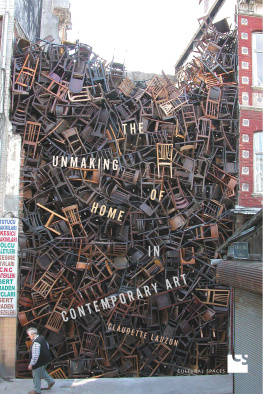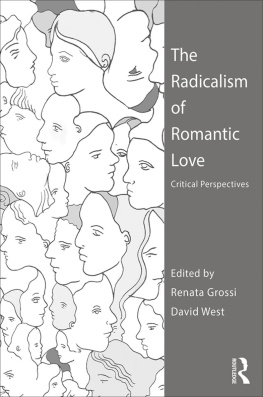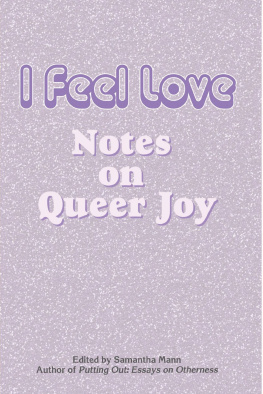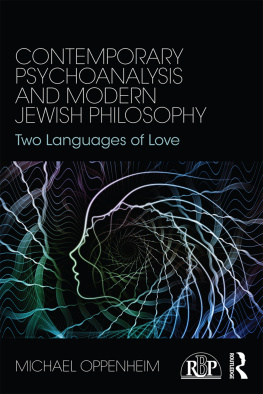Unmaking Love
Literature Now
Literature Now
Matthew Hart, David James, and Rebecca L. Walkowitz, Series Editors
Literature Now offers a distinct vision of late-twentieth- and early-twenty-first-century literary culture. Addressing contemporary literature and the ways we understand its meaning, the series includes books that are comparative and transnational in scope as well as those that focus on national and regional literary cultures.
Caren Irr, Toward the Geopolitical Novel: U.S. Fiction in the Twenty-First Century
Heather Houser, Ecosickness in Contemporary U.S. Fiction: Environment and Affect
Mrinalini Chakravorty, In Stereotype: South Asia in the Global Literary Imaginary
Hctor Hoyos, Beyond Bolao: The Global Latin American Novel
Rebecca L. Walkowitz, Born Translated: The Contemporary Novel in an Age of World Literature
Carol Jacobs, Sebalds Vision
Sarah Phillips Casteel, Calypso Jews: Jewishness in the Caribbean Literary Imagination
Jeremy Rosen, Minor Characters Have Their Day: Genre and the Contemporary Literary Marketplace
Jesse Matz, Lasting Impressions: The Legacies of Impressionism in Contemporary Culture
Unmaking Love
The Contemporary Novel and the Impossibility of Union
Ashley T. Shelden
Columbia University Press
New York

Columbia University Press
Publishers Since 1893
New York Chichester, West Sussex
cup.columbia.edu
Copyright 2017 Columbia University Press
All rights reserved
Library of Congress Cataloging-in-Publication Data
Names: Shelden, Ashley T., author.
Title: Unmaking love: the contemporary novel and the impossibility of union / Ashley T. Shelden.
Other titles: Contemporary novel and the impossibility of union
Description: New York: Columbia University Press, 2016. | Series: Literature now | Includes bibliographical references and index.
Identifiers: LCCN 2016024430 | ISBN 9780231178228 (cloth: alk. paper) | ISBN 9780231543156 (e-book)
Subjects: LCSH: English fiction20th centuryHistory and criticism. | English fiction21st centuryHistory and criticism. | Love in literature. | Intimacy (Psychology) in literature. | Modernism (Literature)Great Britain.
Classification: LCC PR888.L69 S457 2016 | DDC 823/.08509dc23
LC record available at https://lccn.loc.gov/2016024430
A Columbia University Press E-book.
CUP would be pleased to hear about your reading experience with this e-book at cup-ebook@columbia.edu.
Cover design: Jordan Wannemacher
For my mother, Roxanna
and my father, Thomas
Contents
It seems fitting that a book so skeptical of love would never have made it into print without a lot of it. This project began as my doctoral dissertation in the English Department at Tufts University, where I found the support of faculty and friends, who made graduate school fun. Joseph Litvak not only taught me about reading but also remains the paragon of stylewriterly, culinary, and sartorialto which I aspire. Lecia Rosenthal was always willing to talk with me about all things modernist. And Heather Love, the outside reader for my dissertation, offered careful and generous feedback. I relished the time spent working on very early versions of some of these chapters in a writing group with Amy Woodbury Tease and Lauren Byler. I am especially grateful to Jonathan Wilson and the Center for the Humanities at Tufts for giving me a fellowship in my final year to complete my dissertation. My time in graduate school was also enriched by the company of Kristina Aikens, Brianna Burke, Sari Edelstein, Anne Moore, David Palumbo, Meg Toth, and Cynthia Williams. And I had the excellent fortune to meet Holly Jackson, who traipsed all over Boston with me in many unspeakable adventures and who is the best friend anybody could have.
Most of all, graduate school would not have been filled with nearly as much joy were it not for my adviser, Lee Edelman. Lee has always provided what seems like a bottomless reserve of support, encouragement, and love. As my adviser, he challenged and inspired me, tolerated my social awkwardness, and always welcomed me into his office when I needed help or wanted his company. I dont think I will ever be able to repay him for his astonishing generosity or convey my gratitude for his friendship.
Even as this project began at Tufts University, it also, in some ways, began earlier when I was an undergraduate at Ithaca College. My time at Ithaca College was formative in many ways, and one of the most significant moments was when I walked into Jonathan Gil Harriss literary theory course; my brain has never been the same since. I am grateful to Gil not only for this utterly transformative class but also for his friendship all these years later. Even though the friends I made thereFrank Baldaro, Adam Bricault, Kim Correll, Camille Lannan, and Regan Schoelerlive far away, they are always with me.
But when I think of Ithaca College, the face I see most clearly belongs to Madhavi Menon, whose mind galvanized me as she taught me about Shakespeare, queer theory, and life. Madhavi has been with me every step of the way through the writing of this book. She has fed me, read many drafts, yelled at me (with love), lifted me up when I was down, and taken care of me in many cities and on two different continents. Madhavis brilliance and her immense capacity for love have been and continue to be some of the greatest gifts in my life.
Here in Atlanta, I am grateful to have developed friendships both at Kennesaw State University and beyond. At Kennesaw State, the members of my writing group, Keith Botelho and M. Todd Harper, provided much help in the development of . This project has also benefited from conversations with other colleagues in the English Department: Martha Bowden, Katarina Gephardt, Chris Palmer, and H. William Rice. The students in my twentieth-century British literature courses provided the first testing ground for many of the ideas in this book. I am especially grateful to Dean Robin Dorff and the College of Humanities and Social Sciences at Kennesaw State University for providing subvention funds for the publication of this book. And, beyond the university, I have had the pleasure of great company over many coffees, meals, movies, karaoke, and Broadway sing-a-longs with Jonathan Goldberg, Lynne Huffer, Tamara Jones, Michael Moon, and Colin Talley.
At Columbia University Press, Philip Leventhal has been an amazing advocate for this project; I am grateful for his excellent editorial eye and encouragement throughout this process. I have also been fortunate to work with the coeditors of the Literature Now seriesMatthew Hart, David James, and Rebecca Walkowitzwho have been receptive and generous interlocutors. Their support, suggestions, and advice have strengthened and sharpened the arguments in this book. I also owe the anonymous readers and Jane Gallop an immense debt of gratitude. Their attentive readings of various versions of the manuscript improved in myriad ways the final product. An early version of chapter 2 was presented as an invited talk at Emory University; thanks to Jonathan Goldberg for inviting me. And early versions of other chapters were presented at Narrative, the Modern Language Association Conference, and the Modernist Studies Association Conference. Part of chapter 4 appeared elsewhere: Cosmopolitan Love: The One and the World in Hari Kunzrus Transmission, Contemporary Literature 52, no. 2 (2012): 34873. My thanks to the University of Wisconsin Press for permission to include this work here.
Next page






